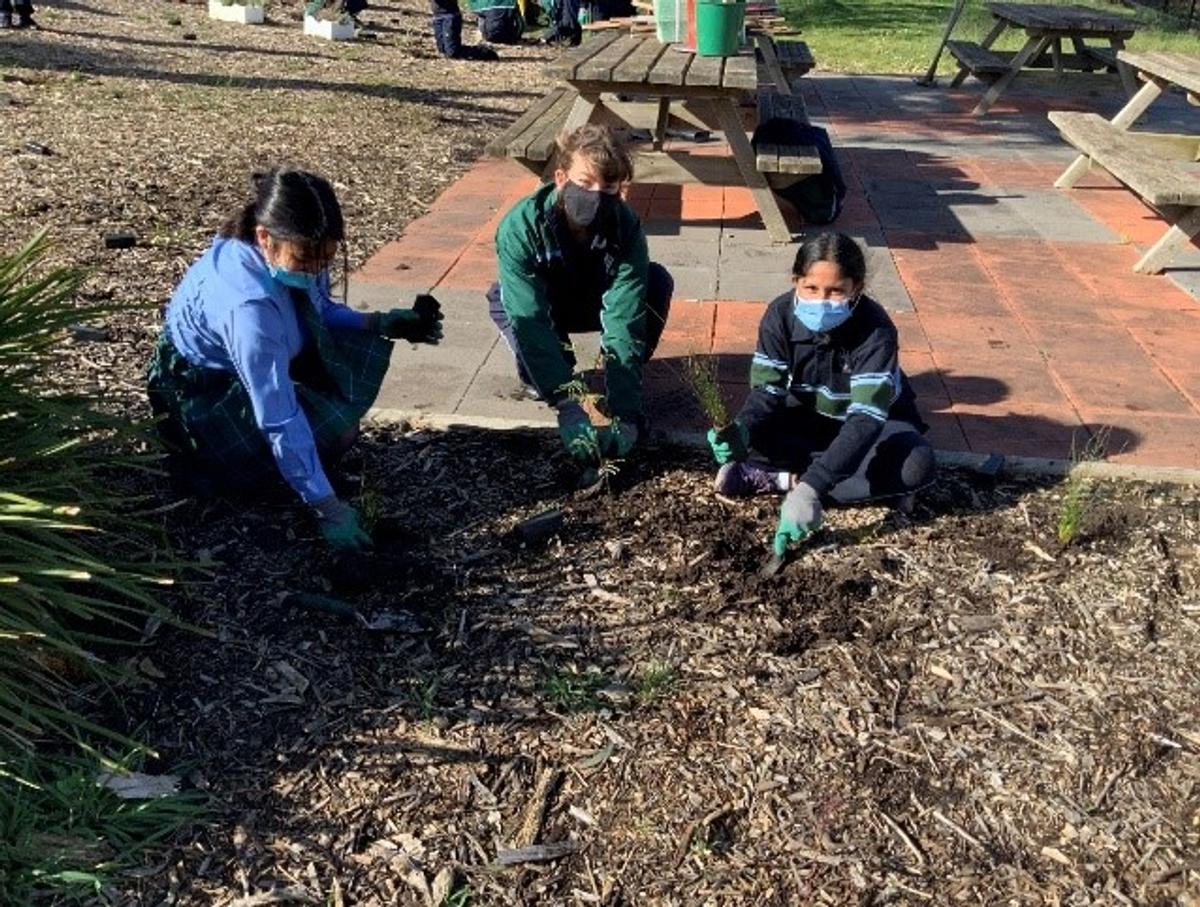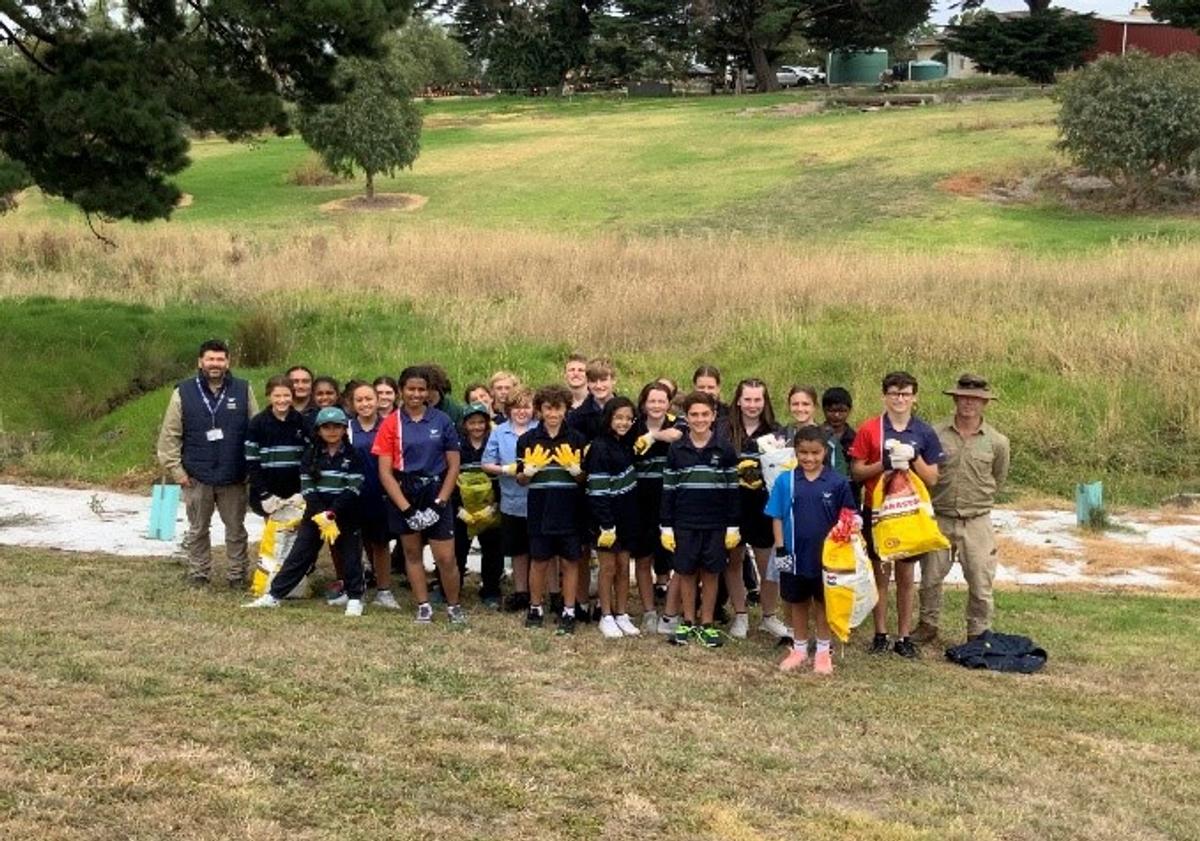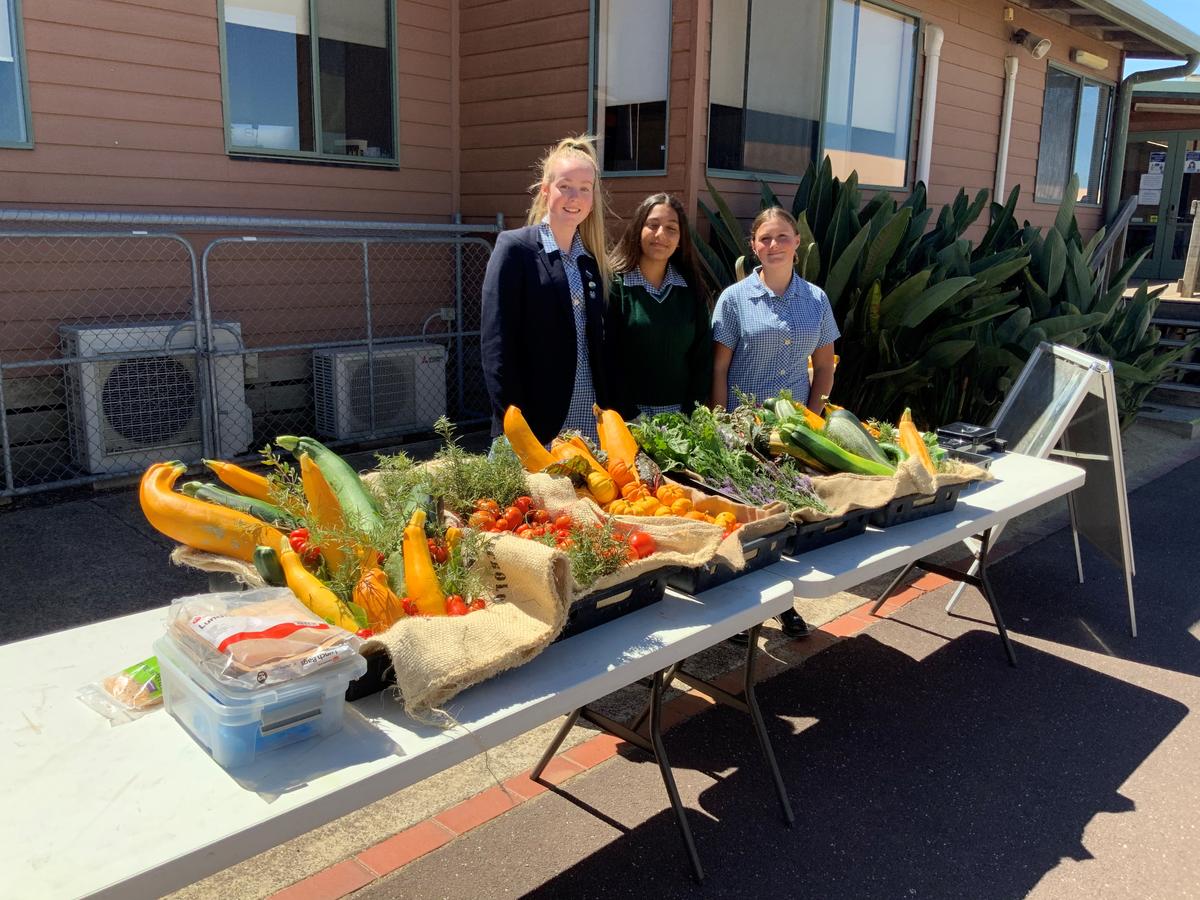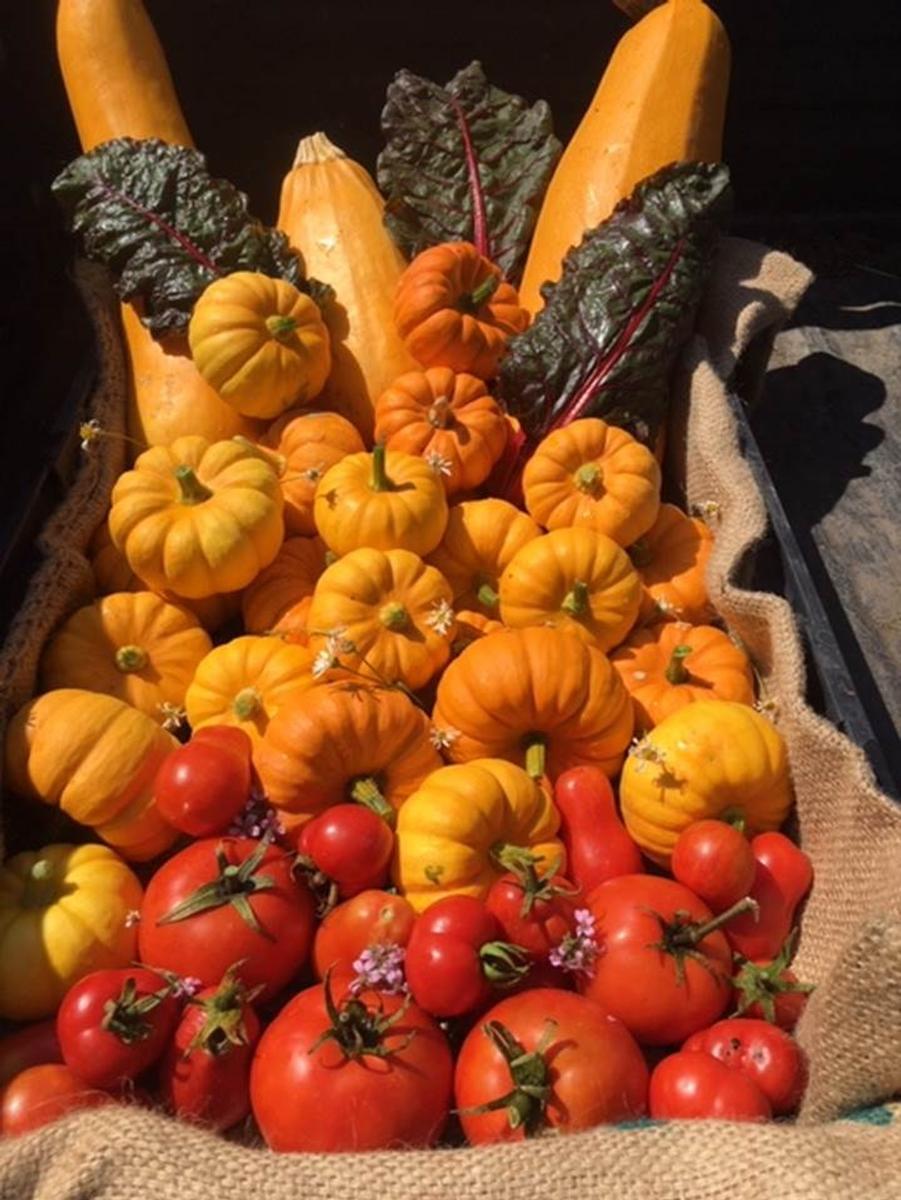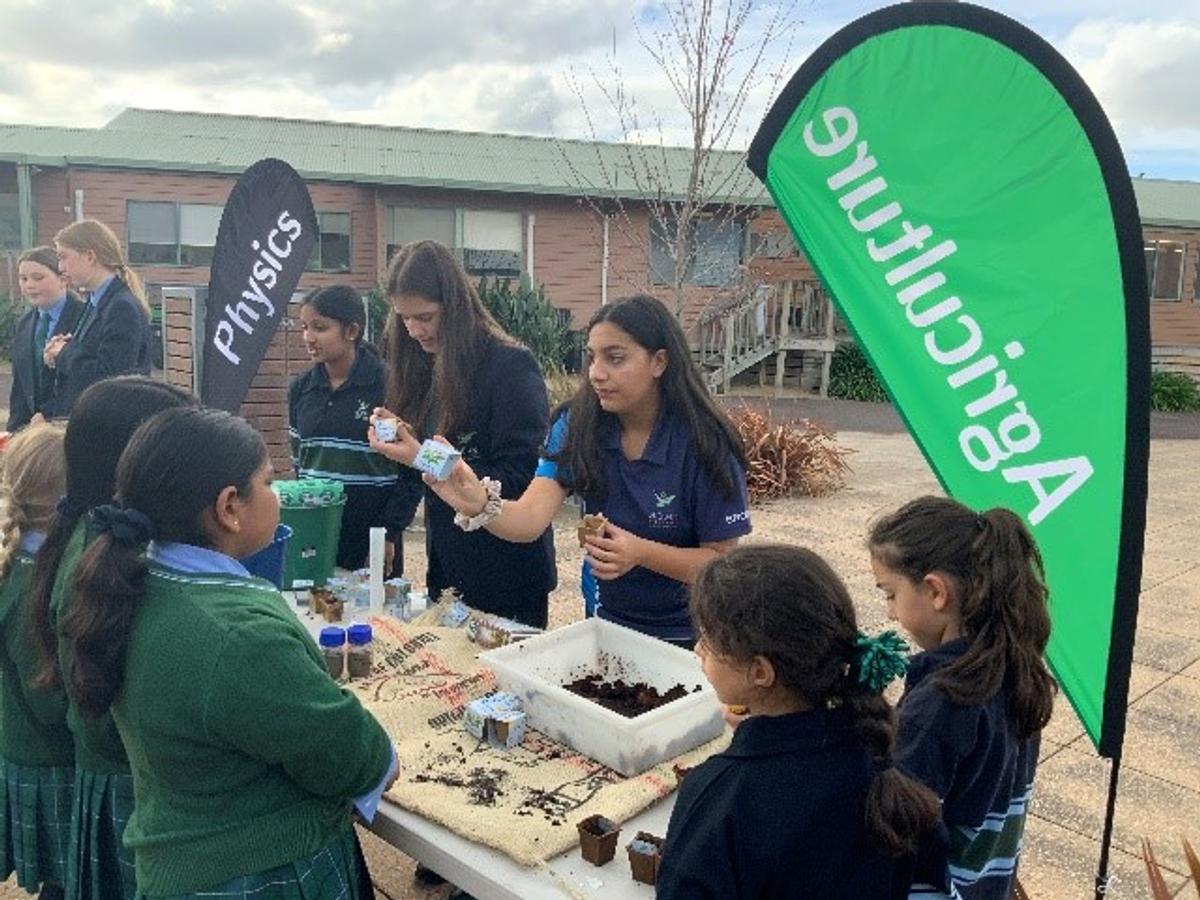Sustainability & Agriculture Report
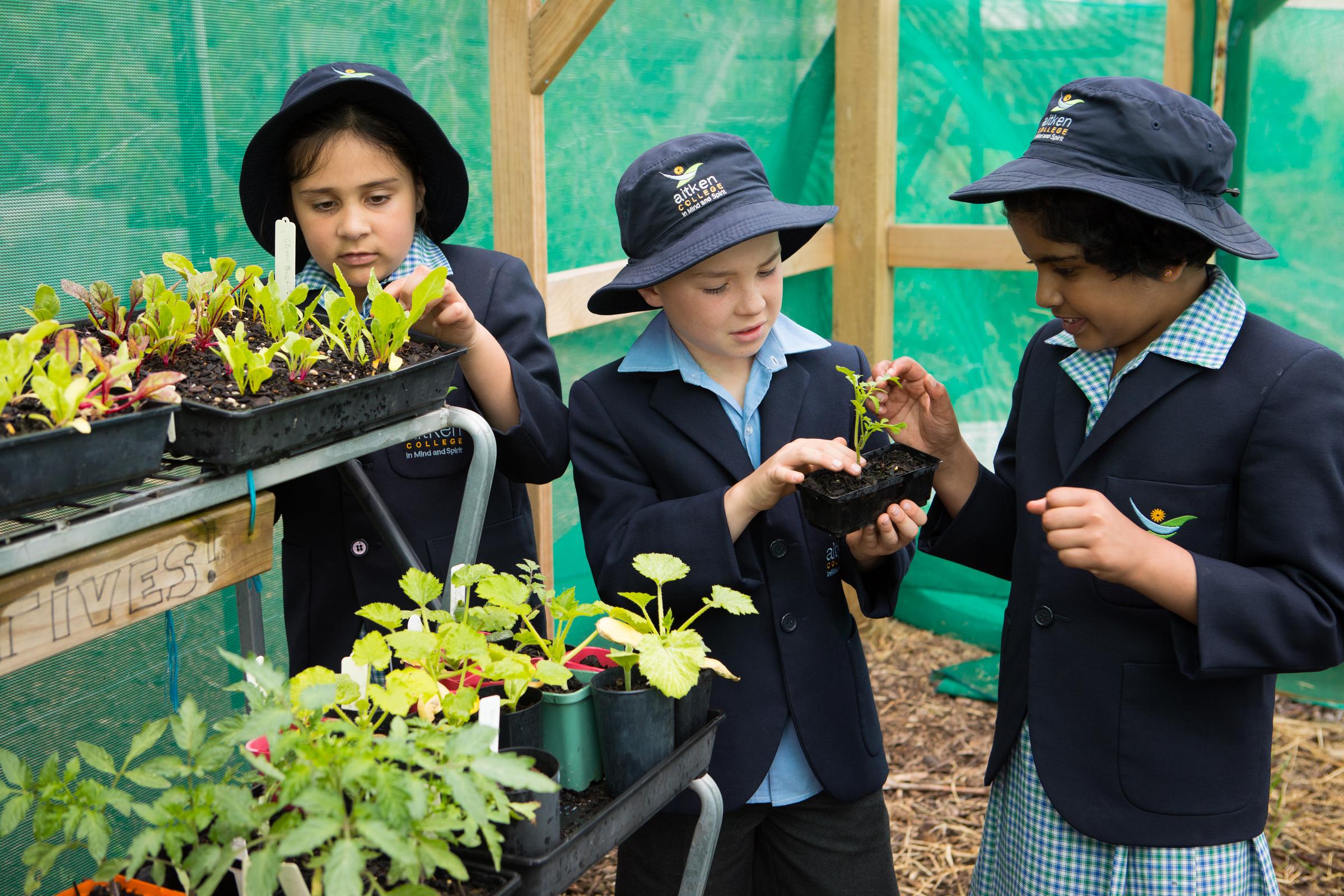
Sustainability Report by Mr Dwayne Ganci - Sustainability Coordinator
Students have continued to participate in sustainability activities. This has been of great benefit to the environment and the school community. The College continues to surpass Government expectations in regards to embedding sustainability practices. We have achieved a 4-star certification rating as a result of demonstrating continuous improvement in areas of biodiversity, energy, waste and water.
This year the sustainability team focused on renewing the school's water module. This is a requirement of the Resource Smart Schools Program which is funded by Sustainability Victoria. This involved undertaking a comprehensive water audit of the school. The data collected is used to help raise awareness and hopefully change behaviour/habits towards water conservation and improve Aitken College’s water management in the future.
The team also investigated ways to reduce the amount of rubbish that goes into landfill. One of the initiatives introduced was having classroom compost bins in classrooms from Prep to Year 9. Thanks to the research undertaken by Dr Adele Hudson (Head of Science), on the Bokashi compost system, the school was able to compost all food scraps such as fruit, vegetables, meat and bread. The Bokashi fermentation process is a lot faster than normal composting methods due to the addition of effective microbes. Moving forward, the Sustainability team is looking at expanding the use of compost bins to include the senior school, Years 10 to 12 and investigate the possibility of composting paper towels.
We were also successful in obtaining a grant to redevelop the Wildlife Corridor. The redevelopment will include the construction of a pond and a path as well as planting and propagating native plants. The main aim of the redevelopment is to improve biodiversity by increasing native indigenous plants and thus habitat for native animals. In particular, those animals that are endangered to the area. The redevelopment will also provide an opportunity for students to use the Wildlife Corridor as an educational resource.
We also participated in the Schools Clean Up Australia Day and National Tree Day. The primary objectives of these two events were to clean up rubbish and plant trees. This also promoted increased awareness of the importance of trees and the impact that rubbish has on the environment and community.
Agriculture Report by Mr Glenn Hudson - Agricultural Resource Manager
Science in Agriculture
This year, students brought science into agriculture by introducing investigation, research and experimentation to their learning. Students investigated the science of soil with the aim of improving water efficiency, soil health and structure for good crop yield and quality. This resulted in helping grow quality vegetables for the school market and kitchen programs. Agriculture is always developing new innovations and techniques to solve difficult problems that might be caused by the environment, disease or urban developments. Using scientific and innovative approaches, students learned how we can grow quality food in an ever-changing environment.
Our Farm Animals
It was great to have two calves on the farm that formed part of the careers program for students. Students had to bottle feed, measure growth and monitor health conditions of the calves over a period of three weeks before they were handed back to the farmer.
Students also had the opportunity to learn many aspects involved in looking after the alpacas, sheep and chickens on the farm. They learned to understand animal nutrition, potential diseases and paddock and pasture management. Areas that were covered as part of the Animal Husbandry and Health program were:
- Administer drenching injections for parasites and worms for sheep and alpacas
- Learn how to trim the sheep and alpaca nails
- Check teeth to determine age and health of animals
- Check for body weight and assess muscle shape and structure
- Learn about and administer vitamin A, D and E injections
- Pasture and paddock management
- Watch and learn how animals are shorn
The Science of Growing GIANT Pumpkins
The key to growing a giant pumpkin is seed genetics in conjunction with correct soil structure, feed regime and environmental conditions. This year we managed to grow two giant pumpkins both weighing between 71 and 75kg. We hope to do better next year and pass 100kg. We recently discovered the important role that genetics and other factors play in growing gigantic vegetables; however, it was our failures that helped us find a solution. These fun activities will be part of our ongoing scientific challenges which give us opportunities to try new methods and investigations.
Agriculture Stall at STEM Week
During STEM week, agriculture students ran a workshop where they taught other students how to propagate seeds and grow plants. Seeds were propagated in small biodegradable pots which can be planted directly in the soil. Well done to all the students who got to see hundreds of seeds propagated.




